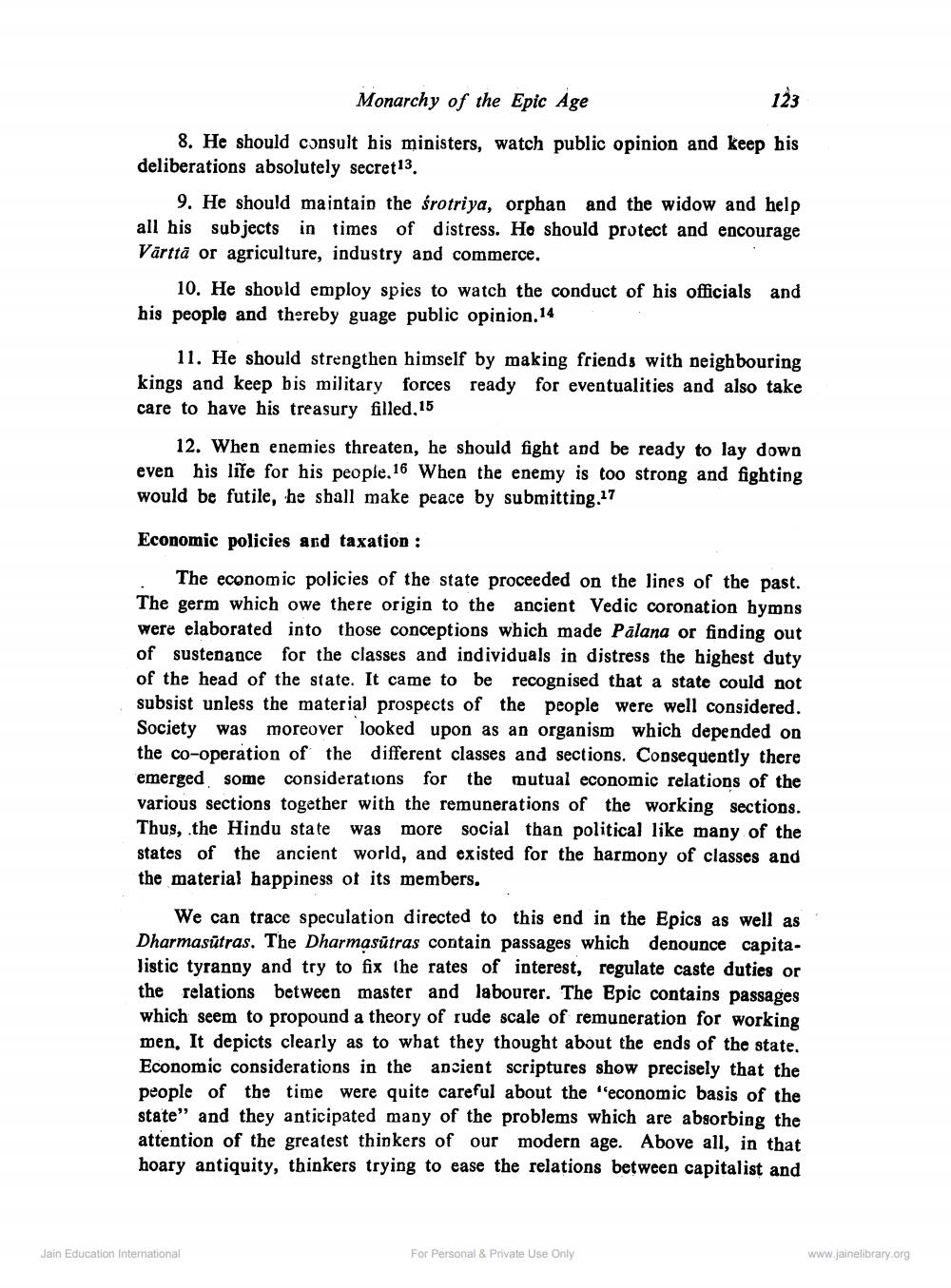________________
Monarchy of the Epic Age
123 8. He should consult his ministers, watch public opinion and keep his deliberations absolutely secret13.
9. He should maintain the śrotriya, orphan and the widow and help all his subjects in times of distress. Ho should protect and encourage Värtta or agriculture, industry and commerce.
10. He should employ spies to watch the conduct of his officials and his people and thereby guage public opinion.14
11. He should strengthen himself by making friends with neighbouring kings and keep bis military forces ready for eventualities and also take care to have his treasury filled, 15
12. When enemies threaten, he should fight and be ready to lay down even his life for his people. 16 When the enemy is too strong and fighting would be futile, he shall make peace by submitting.17
Economic policies ard taxation :
The economic policies of the state proceeded on the lines of the past. The germ which owe there origin to the ancient Vedic coronation hymns were elaborated into those conceptions which made Palana or finding out of sustenance for the classes and individuals in distress the highest duty of the head of the state. It came to be recognised that a state could not subsist unless the material prospects of the people were well considered. Society was moreover looked upon as an organism which depended on the co-operation of the different classes and sections. Consequently there emerged some considerations for the mutual economic relations of the various sections together with the remunerations of the working sections. Thus, the Hindu state was more social than political like many of the states of the ancient world, and existed for the harmony of classes and the material happiness of its members.
We can trace speculation directed to this end in the Epics as well as Dharmasūtras. The Dharmasūtras contain passages which denounce capitalistic tyranny and try to fix the rates of interest, regulate caste duties or the relations between master and labourer. The Epic contains passages which seem to propound a theory of rude scale of remuneration for working men. It depicts clearly as to what they thought about the ends of the state. Economic considerations in the ancient scriptures show precisely that the people of the time were quite careful about the "economic basis of the state" and they anticipated many of the problems which are absorbing the attention of the greatest thinkers of our modern age. Above all, in that hoary antiquity, thinkers trying to ease the relations between capitalist and
els.
Jain Education International
For Personal & Private Use Only
www.jainelibrary.org




